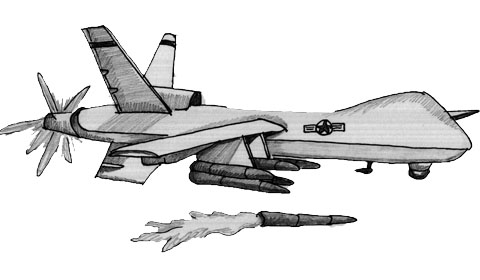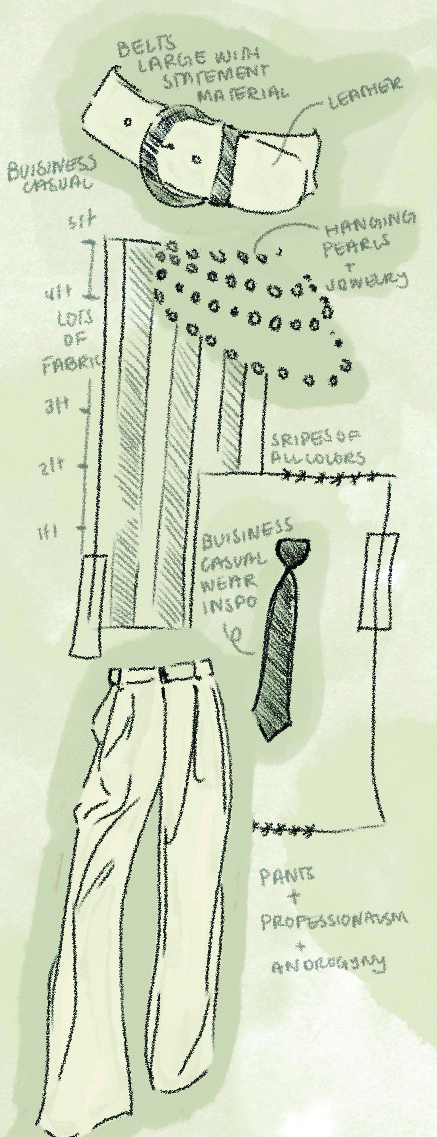
After the terrorist attacks on 9/11, a National Commission on Terrorist Attacks Upon the United States report decided that the attacks happened because of a “failure of imagination” by the US government. In response, the Department of Homeland Security decided in 2007 to assemble a team of science fiction writers called Sigma, who took on the task of dreaming up future solutions to stop terrorism. Blueprints included revolutionary ideas such as “an antibiotic that cures martyrdom” and “mind-reading helmets for bomb-sniffing dogs.”
But not mind-reading helmets for the President or any other human for that matter; that would just be crazy!
While these ideas never came to fruition, the War on Terror, as President Bush called it, or the more recent Obama Administration shift to a nameless set of targeted operations to eliminate al Qaeda and affiliated groups in the Middle East and North Africa, has certainly taken a turn for the sci-fi. Suspected terrorists and militants are now systematically taken down with high-tech drones controlled entirely by people stationed in America. These newfound capabilities are lauded by politicians, scientists and scared American citizens everywhere—we kill terrorists with no damage to ourselves, and it’s cheap too! What could be better?
Unfortunately, this solution is just about the worst thing we could possibly do to address the proliferation of terrorist groups. The use of drones by the United States has led not only to destruction of civilian life and annoying airport security: it may even create more terrorism.
One of the main arguments in favor of drone usage is that it leads to less damage than conventional warfare. While this may be true to an extent, at least in conventional warfare there is hope of rebuilding; American troops in the Iraq war often assisted in rebuilding destroyed infrastructure and providing aid to civilians. In drone warfare, families are left to deal with dead family members and destroyed property alone.
Anyone growing up in an environment like the one in Pakistan, where the constant whirring of drones overhead in some areas brings the fear of death and the highest court recently deemed drone strikes illegal, is bound to grow resentful of America. For every actual terrorist killed, a martyr is created; wouldn’t you feel angry and violent towards a country that rained fire onto your neighbors and friends from thousands of miles away? And so the clerics give impassioned speeches about the evil hegemon America, and how the only way to end this evil is by killing Americans. Recently Dzhokhar Tsarnaev, one of the Boston Marathon bombers, told FBI investigators that that bombing was retaliation for the United States’s military engagements in Iraq and Afghanistan. While a drone attack may stop one individual terrorist in the Middle East, that death will encourage hostile people worldwide to hate America. However, it is entirely possible that ending our “War” will bring us closer to a real solution (and save America huge amounts of money).
Though it sounds idealistic, the only real hope of fully combatting terrorism is with cooperation with other countries. As Lee Kuan Yew, former prime minister of Singapore, argues in his most recent book, we must not abandon our support of Iraq and other countries in the Middle East. In the aftermath of US withdrawal, Iraq saw more terrorist attacks than ever. Withdrawing economic and military aid from the Middle East makes it look as though terror groups have won, boosting the morale of the clerics and extremists. NATO countries, including the United States, should jointly support moderate Muslims with economic aid and perhaps indirect military aid. If we ended the drone policy, which hurts entire countries, moderate Muslims would likely feel more comfortable standing against the radicals.
We’ve seen this type of positive reinforcement work before; during the Cold War, the Marshall Plan provided economic aid to Turkey and Greece to stop them from becoming Communist. The cautionary tale that should be taken from the Cold War, however, is that the United States cannot pick one ideal to promote above all else—during the Cold War, the United States supported fascist and oppressive regimes just because they were anti-communist. Similarly, the United States must shy away from adamantly supporting secularism and realize that moderate Islam is not something it needs to fight. The United States already fell into this pitfall by supporting Hosni Mubarak, the secular but oppressive dictator of Egypt who was recently overthrown and replaced with a more religious Islamic leader. We can avoid the proliferation of terrorist groups by showing support for moderate Islam, bringing the United States credibility in the eyes of several countries, including those on Syria’s borders, like Turkey, that are hoping for a resolution to the Syrian conflict and could be key to promoting moderate values in the Middle East.
By accepting Islam more readily into Western society and by cooperating with and aiding religious states without invading them or sending drones, we could send a message that the Islamic world and America can work together and help end the stigma that is present in Muslim countries against Western science and ideas. Cooperation and support, not murder, will end global terrorism.












